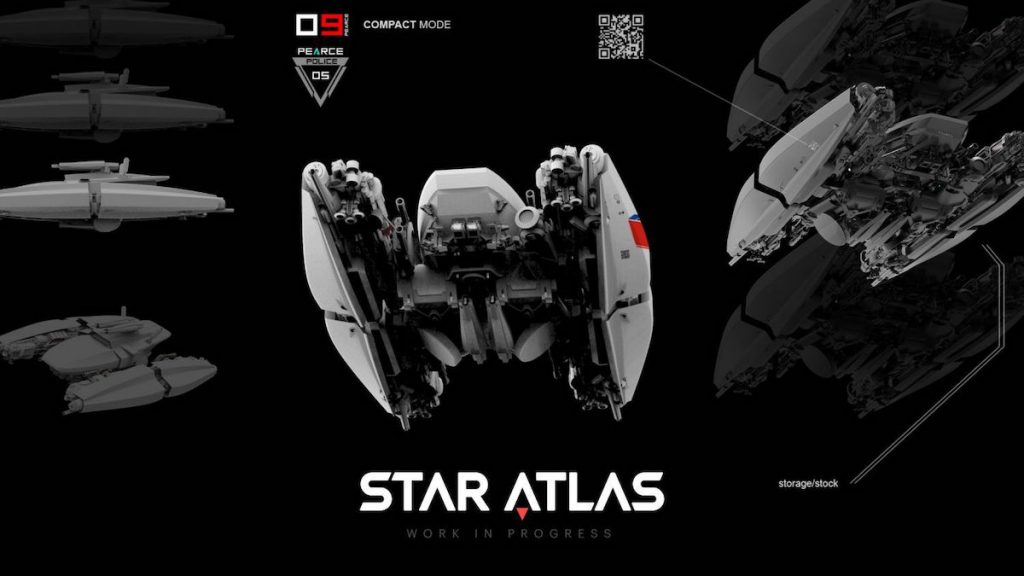
Coinposters
Everything To Know About AAA Blockchain Game Star Atlas

NFTs, the internet’s current craze, are expected to have a significant impact on the gaming industry. This innovative technology has the potential to transform the online video gaming industry’s economic potential. When you combine NFTs with the game business, as well as the concept of the metaverse, you’ll be witness to a technological revolution. One such initiative, Start Atlas, is setting the tone for the future generation of gaming. Star Atlas is creating a virtual game experience set in the far future with a dual token economy.
Star Atlas is a grand strategy game set in the distant future of 2620. Three factions compete for control of the space, vying for precious resources and assets. The ultimate goal of the project is to create a digital world that is parallel to our physical reality and has self-sustaining economies and business operations.
Decentralized finance (DeFi) components such as lending, yield farming, and automatic market-making, like those used by certain other decentralized autonomous organizations, help the project’s digital economy. The game will leverage Unreal Engine 5’s Nanite technology to achieve a full sense of immersion, allowing for hyper-realistic cinematic images.
Star Atlas allows users to explore the vastness of space in quest of valuable NFT-based jewels. It creates a new graphics technology by combining blockchain dynamics with NFT-based in-game items and a unique graphics engine.
Understanding Star Atlas
Star Atlas’ two tokens serve as the foundation for the entire system. The first is the standard in-game currency, $ATLAS. Players can earn $ATLAS by performing a variety of tasks, such as mining ore and selling it on the in-game market, or selling their assets. Almost everything in Star Atlas is an NFT, including starships, land, and mining platforms. “In the game, there are very few objects that aren’t held by gamers,” Wagner added.
Meanwhile, $POLIS allows you to participate in the game’s second aspect: political intrigue. From micro businesses and guilds to massive regional DAOs, Star Atlas has layers of government built in that are governed by players. Any player who owns $POLIS has the ability to make game decisions — and, perhaps most intriguingly, to outvote the creators.
“As $POLIS is spread, we relinquish our majority ownership, and it becomes very possible for the general public to enact changes that we don’t desire.” The concept is that in the future, we will not have complete control over the metaverse’s result.
Traditional gaming income structures, according to Wagner, are rent-based. When you become a player, you are buying entry to a game and renting time within the game universe. While you’re in the gaming world, you have access to things like your character’s appearance, clothing, and appearance. However, if you decide you no longer want to play that game, you will lose all of your things.
Gameplay
Players must embark on lonely and arduous excursions plagued with many risks as they acquire resources and attempt to outsmart other players in the metaverse in the Star Atlas game’s enormous environment.
In the game, players can design entire cities and micro-economies, or collaborate and form decentralized autonomous organizations (DAO) to govern specific territories. The virtual in-game stuff that players gather while playing can even be converted into real-world money.
Unlike most centralized gaming systems, which limit resale and complete ownership of in-game items, Star Atlas embraces decentralization wholeheartedly. Players will own all of the assets they collect in the game and will be able to sell those NFT-enabled in-game products on secondary NFT marketplaces.
Bottomline
By combining cutting-edge blockchain, real-time graphics, multiplayer video games, and decentralized financial technology, Star Atlas is striving to reshape the future of the NFT-based blockchain gaming sector. Star Atlas’ desire for cinematic-quality graphics is also something that no other blockchain competitor has attempted. The game can also take advantage of the Solana blockchain’s low transaction fees and transactional throughput of up to 50,000 TPS.
Due to the project’s nature, however, its future launch, let alone eventual success, may be questionable, as it is subject to major operational, technological, financial, and regulatory uncertainties and dangers.
Additionally, because Star Atlas is a blockchain-based project, the price of the ATLAS and POLIS tokens, which fluctuate with the cryptocurrency market, may have a direct impact on the project.
We hope you enjoyed the guide and look forward to hearing from us again.
Latest
Gaming
21 Feb 2026
Gaming
13 Feb 2026
Gaming
07 Feb 2026
Gaming
05 Feb 2026
Gaming
03 Feb 2026












